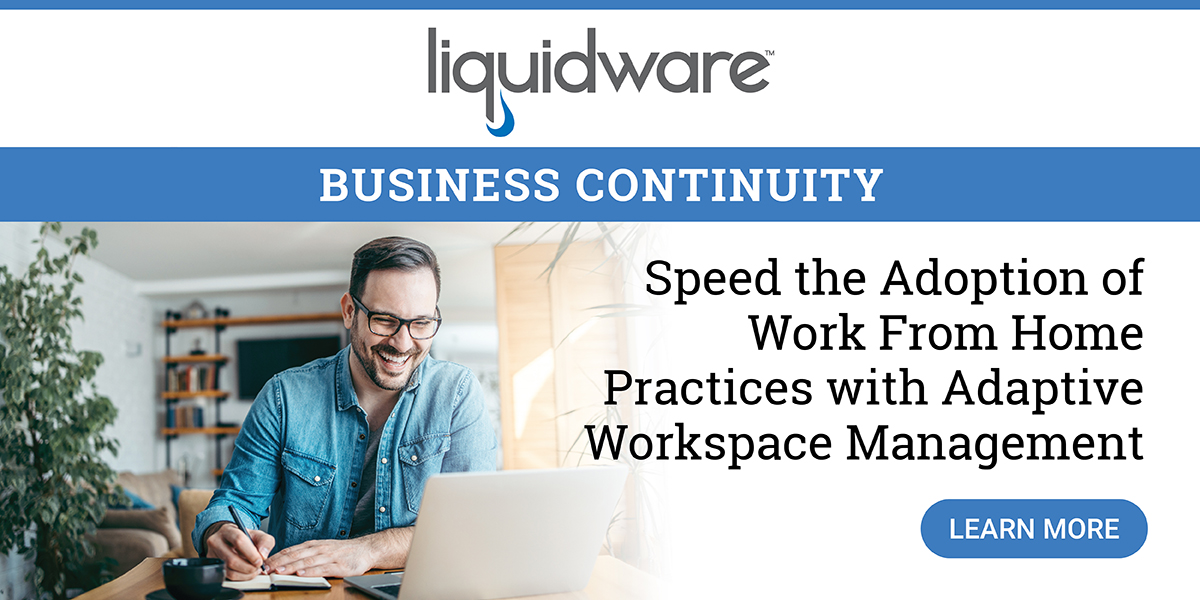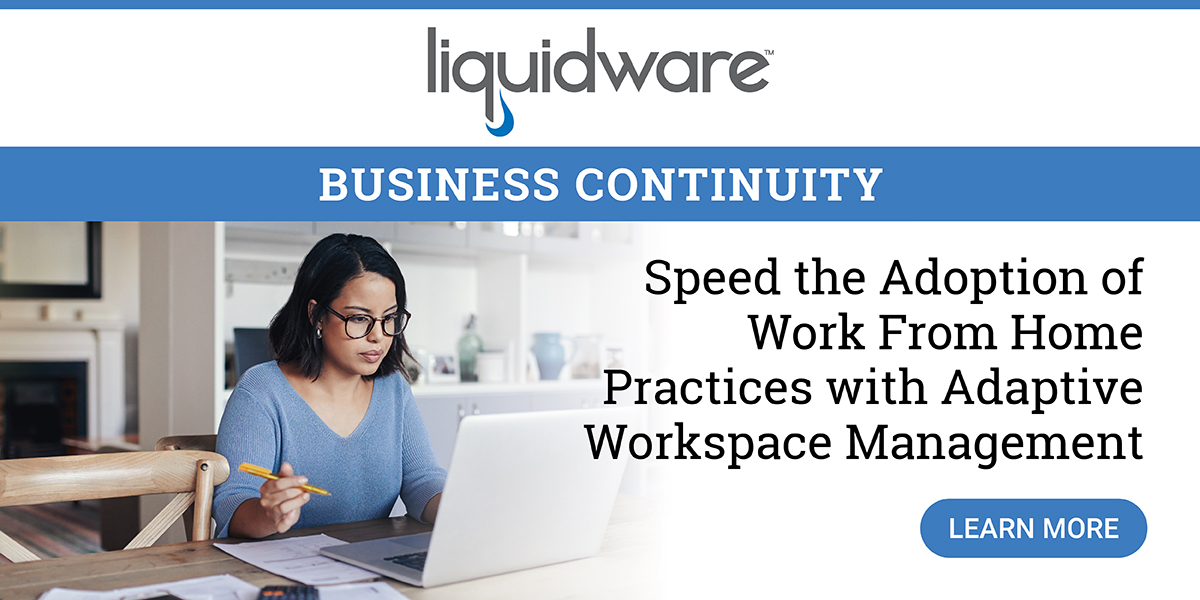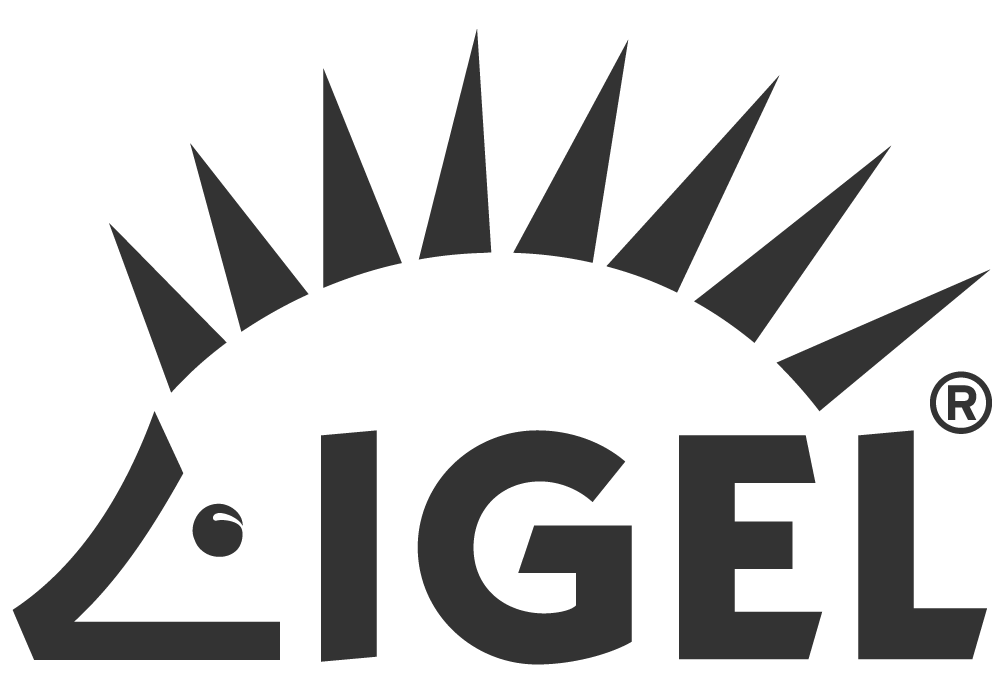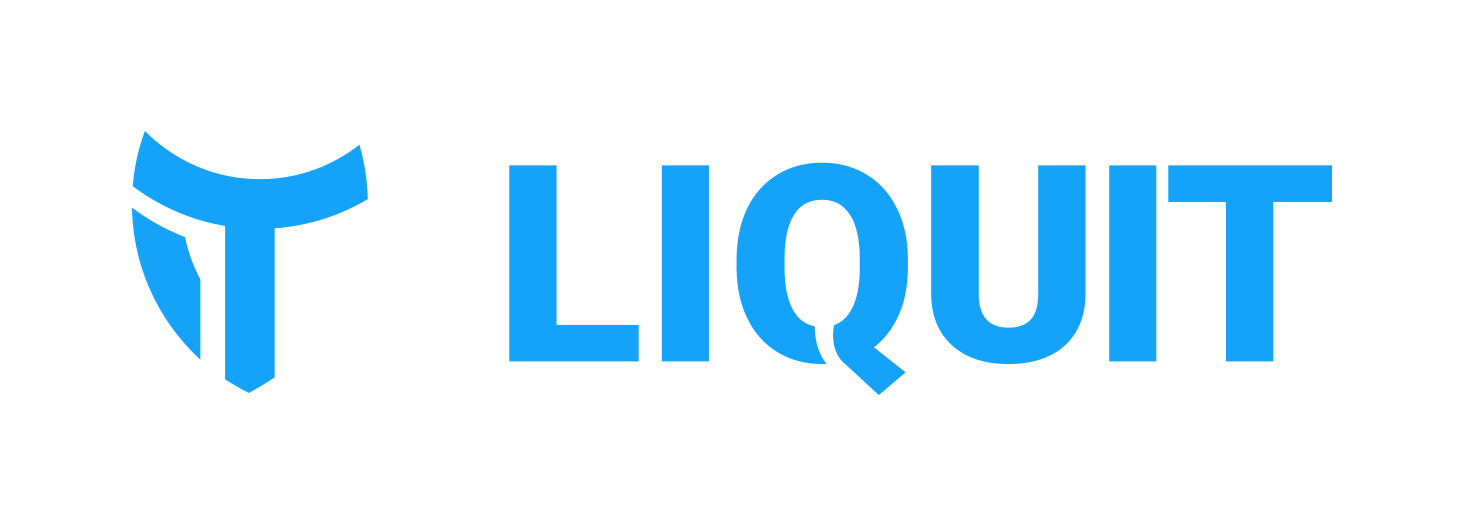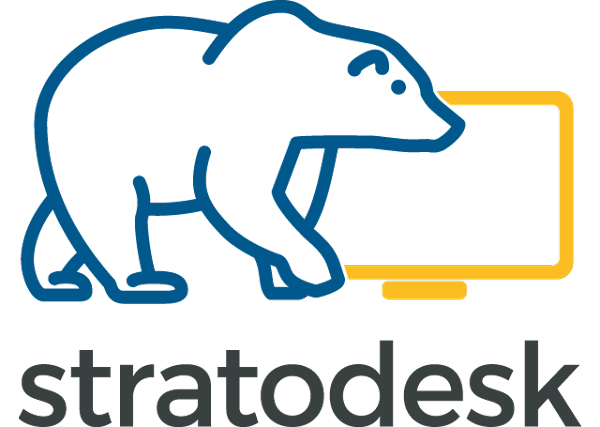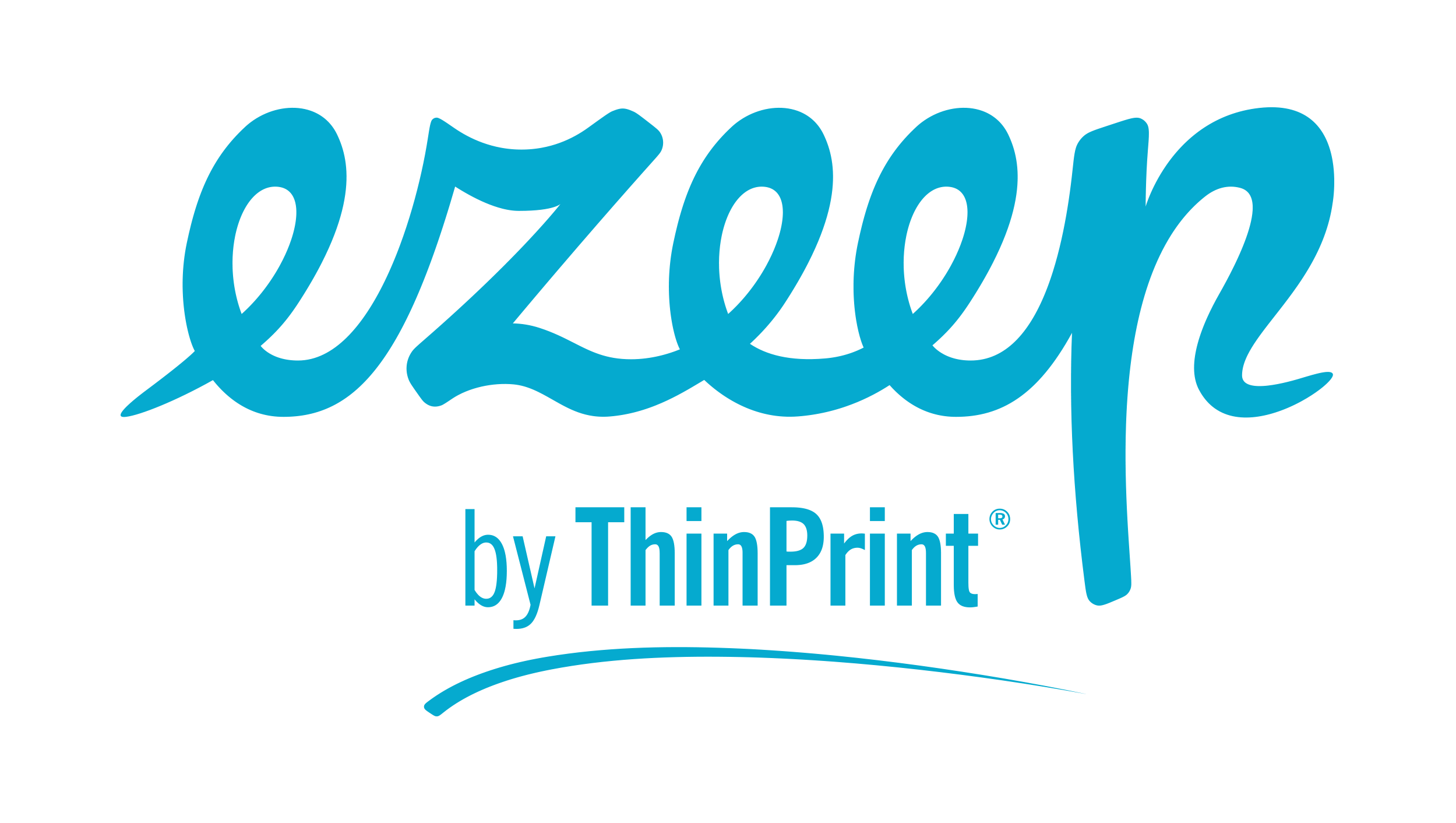VMblog: We've all been witness to a global pandemic, and it's changed the way we work. More than ever, we're seeing a large percentage of people working from home. How has this shift in the way we work changed the way companies are dealing with their employees?
Simon Townsend: At this moment in time we do not know how long the pandemic will last. But for those who are fortunate enough to be able to work from home (WFH), so far it has demonstrated that employees can be productive and that corporate culture around WFH is changing.
Early in the pandemic, a Gartner CFO Survey revealed that 74% intend to shift some employees to remote work permanently, a sentiment that is reflected in recent announcements from Twitter and other large tech companies about allowing employees to work from home forever, if they want to. The fact is, we are in the midst of a sea-change, and it's happening at lightning speed.
As an increasing number of employees become familiar with ‘working at home,' IT departments are now grappling with how they can enable a longer term ‘work from anywhere' experience. This change in terminology is an important step as IT and organizations rethink their business continuity plans, plan for the future and ensure that regardless of where people choose to work, their experience is consistent, secure and performant.
Virtual desktop infrastructure (VDI) and Desktop-as-a-Service (DaaS) are enabling organizations to accelerate WFH strategies. Providing a centrally managed platform which is arguably easier to deploy, manage and secure.
VMblog: "This is the year of VDI" has been a mantra for virtual desktops for many years running. We've gone through remote PC, VDI, DaaS, cloud desktops, etc. But, it's never really gotten mass adoption, why do you think that is? And does this event finally change that?
Townsend: The year of VDI never came and never will! However, 2020 is the year of DaaS. Fueled by cloud offerings from Citrix and VMware and accelerated by Microsoft Windows Virtual Desktop (WVD), the cloud workspace market is increasing in size. Coupled with the pandemic, WVD has taken off much faster than anyone ever expected. The Microsoft Azure-based Desktop-as-a-Service (DaaS) solution offers Microsoft customers an easy migration path from traditional Windows on individual endpoint devices to Windows in the cloud. And with complimentary technologies from Citrix and VMware customers have choice and an ability to scale, and scale fast. Deploying virtualized desktops has never been easier and coupled with solutions like IGEL on the endpoint, cloud desktops are arguably more performant, more secure and cheaper to implement and support than ever before.
VMblog: What are you hearing from customers and prospects? Were they completely caught off guard with mass remote work from home? Or were they already putting things into place, perhaps for other business continuity reasons?
Townsend: Since the pandemic began, we've heard from customers that had not begun putting things into place to support mass work from home scenarios, while others were in various stages of doing so. One example of this is the City of Corona, Calif.
Back in 2018, Kyle Edgeworth, Deputy CIO and Chris McMasters, CIO for City of Corona, Calif. began looking for a better way to support business continuity for the city's desktop computing infrastructure due to the City's close proximity to local wilderness areas and the growing risk from forest fires and earthquakes.
In migrating to the cloud, it was very important to Edgeworth and McMasters that they provide users with the Windows experience they were familiar with. The combination of Citrix and Microsoft Windows Virtual Desktop (WVD) helped them achieve that. They also wanted to improve the ease of managing their endpoints. "To support scalability and reduce the strain on our IT staff and helpdesk, we were moving toward a thin client solution," said Edgeworth. "We landed on IGEL for several reasons. First of all, with IGEL OS we were able to repurpose existing hardware, which helped save costs. Next, the desktops were easy to set-up and deploy. Finally, the security of the solution was a huge selling point."
In March 2020, when it became clear that drastic action was needed at the government level to contain the spread of COVID-19, City of Corona sent their employees home to work in compliance with California's safer-at-home mandate.
"We had to work quickly to bring our emergency operations center online," said McMasters. "We don't do this very often and the IGEL UD Pocket and Citrix afforded us greater flexibility in spinning up virtual desktops on our older machines. The week that the state emergency was declared, five members from our IT team spent an entire day updating our desktop infrastructure. The UD Pocket made things go a lot faster than manually updating the endpoints. All we had to do was plug in the UD Pocket, turn on the computer, boot it up and Windows 10 was accessible from IGEL OS within minutes."
Both Edgeworth and McMasters are confident that once things return to normal, the use of IGEL, Citrix, and Microsoft will make the transition back to the office, or out of the office again should another emergency hit, practically seamless.
VMblog: How has this shift of working from home affected people, connectivity, infrastructure, security, etc.?
Townsend: According to Enterprise Strategy Group (ESG) Senior Analyst Mark Bowker in a recent report, it is a convergence of factors that are creating the ideal conditions for alternate endpoint strategies. These strategies support the consumption of desktops from a centralized data center or cloud for consistent, productive end-user experiences regardless of location, coupled with a consistent IT desktop management experience that supports workers when and how they want to work. Yet, in the context of delivering these new virtual and cloud workspaces, a heightened priority on security comes to light.
The ESG survey found that security continues to be a top reason for choosing VDI/DaaS. In fact, nearly all organizations report that security is a top criterion when selecting a digital workspace - with 53% saying it's critical and 45% saying it's important.
ESG also found that 4 in 5 organizations believe VDI or DaaS to be more secure than traditional desktop provisioning. Yet, despite all this, security is still a concern. In fact, ESG found that three of the top five workspace delivery priorities involve security. In addition to improving employee collaboration (37%) and managing user expectations of access, device choice and application preferences (35%), detecting security incidences, vulnerabilities and risk (36%), controlling and setting conditions for endpoint security policies (32%) and responding to security incidents, vulnerabilities and risk (31%) were listed in the top five.
To help resolve these security concerns, IGEL offers:
- Enterprise-level security is built in. Working to minimize the risk of security incidents and vulnerabilities, IGEL OS is based on a highly secure Linux-based operating system which is virtually impossible to manipulate and is extremely resistant to viruses and other malware. That takes the risk and challenge of detecting and responding to endpoint security breaches down to the absolute minimum.
- Premium security features are standard. IGEL takes built-in security a step further with support for two-factor authentication, smart card readers and trusted application execution - security features that extend your level of protection at the edge via IGEL's vast technology partner network.
- Secure policy management is simple. Using the IGEL Universal Management Suite (UMS) policy management and control can be easily managed for up to tens of thousands of endpoints from a single console. That means, using simple drag-and-drop configuration and management, endpoint policies can be set and applied for granular control. Active Directory policies and profiles are easily integrated.
- No local data is saved on the endpoint. Using IGEL OS, no data is stored on the actual endpoint device - it's all stored in the secure cloud or data center where it can be compliantly managed and secured. This gives IT much greater control of security while users remain productive and happy.
- System-wide integrity is assured. Using IGEL's unique "chain of trust" capability, all components of VDI or cloud workspace implementation are verified system-wide as secure and trustworthy. That means each discrete step from the endpoint to the cloud or data center is validated, and is only started if it is cryptographically signed by a trusted party.
VMblog: How does your software enable the "work from home" shift? And where do your solutions fit within the grand scheme of things?
Townsend: In April, IGEL introduced the "Work from Home Kit" to provide both existing and new customers with the ability to deploy and manage IGEL OS across the internet securely, enabling IT organizations to manage and support thousands of endpoints.
The WFH kit includes everything required to deploy IGEL OS to remote employees, including the UD Pocket (IGEL OS on USB) which enables even unmanaged, older devices to dual boot into a secure managed OS. The WFH kit also includes the IGEL Cloud Gateway which allows access from anywhere connected to the internet, secure configuration, updates and administrator shadowing for support and troubleshooting.
In summary, the ‘Work From Home' kit provides customers with the following:
- An IGEL OS license including IGEL Universal Management Suite (UMS)
- Subscription to the Enterprise Management Pack for 12 months
- Includes the IGEL Cloud Gateway for remote management over the internet
- An IGEL UD Pocket
- Allows users to dual boot existing unmanaged or out-of-date devices to IGEL OS 11
- 12 months maintenance on the above product set
VMblog: What are the big problems that you solve for those companies whose workers are now working from home?
Townsend: Traditional work, as we know it, has dramatically changed. From before the pandemic to the future of what remains, one thing is for sure; humans are spirited and headstrong, and if it's any consolation from the brilliant minds of Bill Gates, who created Microsoft from his parent's house, or Jeff Bezos, who started Amazon in his garage, or IGEL's Heiko Gloge who started our company in a tiny attic - one thing is for certain: work is something you do, not somewhere you go. IGEL is preparing for the post-COVID economy by making it possible for people to work from home.
The IGEL operating system and management platform are ideally suited for Microsoft 365, VDI and DaaS solutions, and today we are helping organizations enable and accelerate their true WFH strategy by providing them with the ability to deploy and manage IGEL OS across the internet securely, enabling IT organizations to manage and support thousands of endpoints.
VMblog: What advice do you have for companies who are still trying to figure out their own game plan for remote workers?
Townsend: COVID-19 has made one thing clear -- agility is our new superpower. Companies should not be afraid to change and in some cases do so radically. The fact is, some of the best outcomes are born from adversity, and I anticipate the WFH will drive even more innovation.
Moving forward, getting everyone in every organization set up to work from home on a secure manageable device will be table stakes. At IGEL, we are working with our ecosystem partners to provide our mutual partners and customers with solutions that provide employees with the freedom to get work done from almost anywhere, while at the same time providing IT with full management and control. Our vision is to transform the way the world works to create better outcomes for people, organizations and the planet.
VMblog: Finally, is work from home and all that we've been doing as a collective group a short-term fix? Will people go back to working in the office after this is over? And if they do go back to the office, do companies continue leveraging the things they put in place, like virtual desktops and remote capabilities? Or do you see some percentage still working from home, or perhaps a mix mode or employee choice?
Townsend: There are a number of ways in which COVID-19 is going to change the way we work. To begin with, we are going to see an increasing number of companies and workers embrace WFH. We've already seen that starting to happen with Twitter's announcement that all employees can work from home forever.
When the pandemic began, I think many viewed WFH as a short-term fix, and many organizations had to divert all their attention in ensuring employees could ‘work at home.' Now, as we move into the second phase where it has become clear that WFH will last much longer than expected, organizations are now considering ways to enable more secure, productive strategies that encompass "work from anywhere," which will include the office post COVID-19.
Many of these strategies will involve end user computing solutions focused on delivering business applications and data to the employee. This will no doubt include new endpoints, mobile devices, SaaS applications and unified endpoint management solutions to name a few.
VMblog: Is there anything else you would like to add?
Townsend: Earlier this year, IGEL announced its 2020 sweepstakes and contest program, "Workspace Coolplace," where eligible participants will be entered to win one of two complete home workspace makeovers, each with a value of $20,000 and quarterly home office prizes. Makeovers will be designed by leading home makeover and organizing expert Vicki Norris.
To enter the Workspace CoolPlace sweepstakes and drawing, visit https://www.igel.com/workspacecoolplace.
Also check out our video interview:

